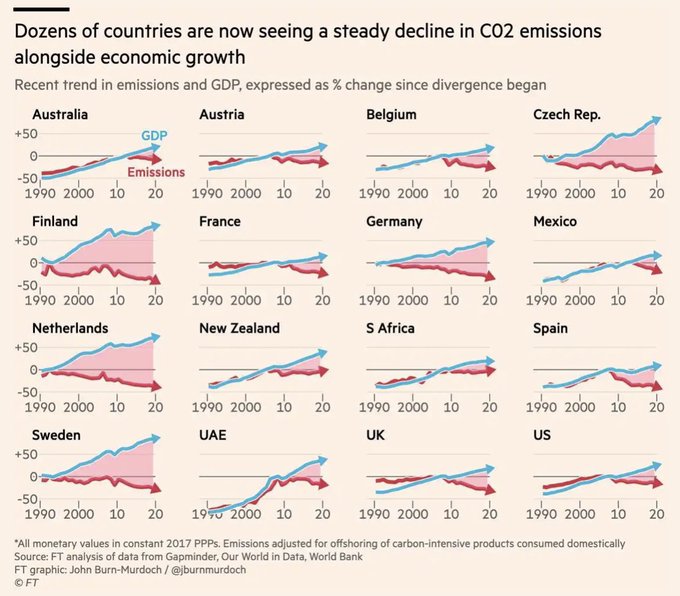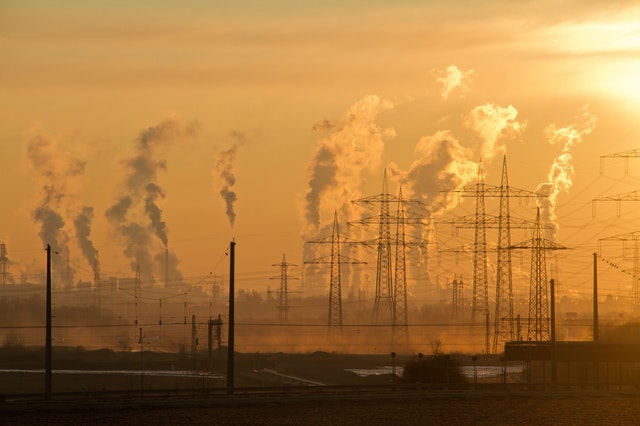Malthus on Population Growth, Economy, Environment, White Nationalism and Eugenics
In recent years we have observed the reemergence of the British nineteenth century preacher Malthus and his ideas on population, via groups like Population Matters in the United Kingdom, with a focus upon negatives round the supposed direct relationship between increasing population (growth), economic growth or impairment, and environmental degradation.
However, Malthusian population principles have less relevance in the 21st century, especially when presented via scientifically untested ideas or philosophy versus the now available grounded science research and data analysis. Further, there is very limited and sub-optimal data to support Malthusian claims which have returned to become a weapon or political tactic. This leveraging of Malthus includes white nationalism, fossil fuels and environmental degradation, apportioning blame for related issue on undefined population growth, as opposed to the lack of good policy development, on actual causes i.e. fossil fuel pollution, global warming through emissions; used to deflect from inertia of governments and create antipathy towards existing and future ‘immigrants’ including babies, from the non European world.
This article shows that Malthusian population principles are neither valid nor reliable when analysed through science and data, according to credible research, but have become central to political and corporate media messaging, especially the population – environment nexus, as opposed to fossil fuels and carbon emissions. Firstly we will explore the background on Malthus, his theory, impacts now upon politics and society, followed by critique from demographers, science journalists and related, based upon valid research; then future directions.
Malthus Background
Malthus was from an English family of means and although his father was a proponent of the enlightenment, not his son Malthus, who was pessimistic when it came to fertility and economic growth. Malthus released his first edition of ‘An Essay on the Principle of Population’ (1798) then followed by a second version using data in 1803, with more focus upon Europe and data that was available (Avery, 2013 & Dunn, 1998)
The second version also focused less on philosophy and more on politics or the economy, based upon the available data which not only linked population growth with economic growth but with poverty too e.g. insufficient food supply; concurrently Adam Smith and the ‘invisible hand’ of the markets emerged via ‘Wealth of Nations’ (Ibid.).
Later Keynes claimed that economic growth ameliorated negative effects of population growth, to be followed from the seventies by Paul Ehrlich’s ‘Population Bomb’ highlighting dangers, recommending population control, extrapolated from high population growth in the 1930s; replicating Malthus’ pessimism, but with catastrophic predictions (Montano & Garcia-Lopez, 2020).
Malthus was influenced by his upbringing and environment leading to his pessimism on humanity i.e. population growth and the ability to support larger numbers in a less developed world. Whether his theories or principles are valid or reliable have been over shadowed by repackaging of Malthusian ideology in recent times by e.g. Ehrlich via ZPG Zero Population Growth, and presented as liberal, environmental and grounded in valid research theory.
What was Malthus’ Theory?
Malthus presented his findings, as others do to this day, but hypotheses presented as tested theory, are still not supported by science. While Malthus saw (high) population growth amongst his own community without means, he cited the need for ‘preventative checks’ including marriage and contraception leading to lower birth rates, but also supported by ‘positive checks’ including famine, war and epidemics (Avery, 2013).
Malthus also linked population with subsistence and presented as direct balanced relationship, possibly influencing Smith’s ‘invisible hand’, but using U.S. data, claimed population doubling every generation versus agriculture and related technological innovations, the latter being only linear or much slower. Hence, no balance or difficult to maintain balance between population growth and accessible resources, while claiming a correlation between the two factors as the ‘first principle of population dynamics’. (Avery, 2013 & Dunn, 1998).
This led onto Malthus developing the ‘EFP Equal Fitness Paradigm’ for a ‘steady state population’ with each parent producing one child, hence two per couple (Dunn, 1998), which is less than the current recommended replacement fertility rates. Not only was population growth correlated with resources including food and subsistence, but also claiming growing supply of workers would mean lower wages (Montano & Garcia-Lopez, 2020).
Malthus’ theory cited both preventative and positive checks with unclear evidence of correlations for either, then extended further into EFP ‘steady-state population’ to avoid future issues round food supply, wages etc. correlated with population growth. In addition to history of population analysis and demography, what has happened and what will happen according to Malthus?
The Future According to Malthus?
According to Malthus, war was caused by population growth but it also reduces the latter; nowadays Malthus may state that stable global population and no war are imperative (Avery, 2013). On the other hand this was countered by Marx who disagreed with Malthusian analysis, versus supporting science, technological progress and speeding up these supporting factors for human health and the economy (to counter population growth issues) (Montano & Garcia-Lopez, 2020)
Of related interest was how Malthus also influenced Darwin’s ‘On the Origin of Species’ based round good genetic variations being preserved, and unfavourable being destroyed, leading onto formation of new species. However, the same adaptation or evolution has allowed human population to become healthier and grow; resulting in higher birth rates and population growth, over death rates (Dunn, 1998).
Meanwhile, to this day we have observed an unwitting return to Malthusian constructs related to fertility, population growth, immigration, resource limits and the natural environment; presenting politically as being of the centre or left. This is exemplified by the founding of ZPG Zero Population Growth by Paul ‘Population Bomb’ Ehrlich, John ‘passive eugenics’ Tanton and Paul ‘Sea Shepherd’ Watson in the seventies alongside ‘Limits to Growth’ and the ‘Steady-State Economy’ economy ‘theories’, promoted through the influential Club of Rome, with same ideas and organisational offshoots in the UK and Australia (Ibid.).
This has led to rivalry between Malthisian school and those described as ‘Cornucopians’ supporting science, technology and related innovations, to lessen the impact of Malthusian or natural constraints through the ‘invisible hand’ of the free market or ‘natural balance’ (Ibid.).
Although science does not support Malthusian population principles they have become central via Ehrlich et al. in promoting control of population growth through opposing undefined ‘immigration’ in the first world, and fertility in the developing world; as causes of environmental degradation and sustainability.
The Reality of Population and Malthus Now?
With the benefits of modern science, technology and research methods Malthusian population principles can be tested on more substantial and diverse data. Malthus population predictions of doubing every generation or 25 years have not come true i.e. from 800 million to only 7.8 billion in 2020 with fertilty on a continuous decline, annual population increase has continued to slow, now 1%, and population numbers are qualified as estimates by most sources (Worldometers.info, 2021), are often not comparable due to differences in definitions, methodology and data collection.
Malthus’ formula from two centuries ago would have had current population at 100+ billion, and related, none of Ehrlich’s Malthusian predictions have come true either.
Other proxy issues are often claimed or correlated without compelling evidence e.g. increasing migration to cities is claimed to increase per capita resource use and meat consumption, requiring more fossil fuel use (Dunn, 1998); this seems to preclude ‘preventative measures’ through legislation and personal responsiblity or lifestyle changes.
Related and significant ideas were also promoted by The Club of Rome, which commissioned the Malthusian influenced ‘Limits to Growth’ and the ‘Steady-State Economy’ which helped promote the supposed negatives of human population through proxy issues of resource depletion and environmental degradation (Montano & Garcia-Lopez, 2020).
There have been more nuanced attempts to relate economic growth in a negative sense with population growth, but while Malthus lived through the fossil resource dependent industrial revolution, this has declined as a share of GDP (Dunn, 1998). However, Malthusian school to this day views increases in GDP or economic growth as negative due to supposed dependence upon industrial use and linking of fossil fuels, population growth and environmental degradation; ignoring the positive impacts of science, technology and innovation plus the desire of poorer people or working classes to improve their economic situation (Ibid.).
Related is how Malthusian principles also influenced Darwin on ‘natural selection and the theory of evolution’ which was then extended further by the eugenics movement e.g. worker versus immigrant nexus when it is about all workers knowing their place in societal and industrial hierarchy, blaming poor for famine, ‘survival of the fittest’ and for example describing the Irish famine as positive (Montano & Garcia – Lopez, 2020 & Shermer, 2016). Again, when this is added to supposed outcomes or dynamic of population growth leading to economic growth, resource depletion and environmental degradation e.g. carbon emisisons, but ignoring increase in service industries not using same resources (Montano & Garcia-Lopez, 2020)
Later research into eugenics was conducted in the U.K., Germany and U.S. with support of U.S. oligarchs such as Rockefeller (Standard Oil, later Exxon Mobil/Chevron) and Ford, not only operating in Germany through World War Two, but supporting eugenics research at the Kaiser Wilhelm Institute (Shermer, 2016).
The Malthusian population movement has been accused of promoting eugenics versus poor or lower classes, non European minorities and immigrants i.e. dog wistled, to deflect blame and responsibility from governments, and the fossil fuel sectors for global warming, carbon emissions and environmental degradation.
Critics & Criticism
Many if not all the issues viewed through and correlated with the population principles of Malthus have not come to pass. Nowadays scientists and media have access to more related research into population, economics, society and environment through better data analysis following science process. Issues to emerge through this have been inconsistent methodologies in data collection, analysis and presentation precluding many comparisons. Meanwhile, forecasts of Malthus proven incorrect e.g. improved food production has increased faster than population, lower fertility and birth rates leading to population stabilisation while economic growth has increased without significant population growth (Montano & Garcia-Lopez, 2020).
According to Vollset et al. (2020) regarding demographic impacts, that while variances in population, structure and growth are factors for nations, governments and society to consider, it should not resort to comparing humans with animals when green revolution, irrigation and fertiliser, i.e. science and technology have found solutions.
Shermer (2016) adds that as opposed to Malthusian principles still being promoted, the solutions are and have been education, empowerment of women, birth control, economic growth to bring the poor out of poverty supported by democracy, globalisation and free trade.
We have had an over view of Malthus’ early life, population theory, future according to Malthus, then based upon science, the reality and criticisms. Much of the negativity round population and growth from past two centuries to now, especially in the Anglo world, is unwarranted when not only have catastrophic predictions not occurred, it is being used tactically to deny progress on environmental regulations, transition from fossil fuels and blaming any perceived negative on undefined immigrants responsible for population growth.
The latter allows political, government, business and societal elites to avoid future issues, responsibilities and short medium term costs to maintain an optimum environment versus leaving it for future generations to clean up for a higher cost.
References:
Avery J. S. (2013). Malthus. Cadmus Journal [online]. 1(6). [Viewed 15 January 2021]. Available from: https://www.cadmusjournal.org/article/issue-6/malthus
Dunn P. M. (1998). Thomas Malthus (1766–1834): population growth and birth control. Arch Dis Child Fetal Neonatal [online]. 78(1), F76–F77. [Viewed 15 January 2021]. Available from: https://www.ncbi.nlm.nih.gov/pmc/articles/PMC1720745/pdf/v078p00F76.pdf
Montano B. & García-Lopez M. (2020). Malthusianism of the 21st century. Environmental and Sustainability Indicators. [online]. 6(100032). [Viewed 15 January 2021] Available from: https://doi.org/10.1016/j.indic.2020.100032.
Shermer M. (2016). Why Malthus Is Still Wrong Why Malthus makes for bad science policy. Scientific American. [online] [Viewed 15 January 2021] Available from:
https://www.scientificamerican.com/article/why-malthus-is-still-wrong/?print=true 2/4
Vollset S., Goren E., Yuan Chun-Wei, Cao, J., Smith A., Hsiao T., Bisignano C., Azhar G., Castro E., Chalek J., Dolgert A., Frank T., Fukutaki K., Hay S., Lozano R., Mokdad A., Nandakumar V., Pierce M., Pletcher M., Robalik T., Steuben K., Yong Wunrow H., Zlavog B., Murray C. (2020). Fertility, mortality, migration, and population scenarios for 195 countries and territories from 2017 to 2100: a forecasting analysis for the Global Burden of Disease Study. Lancet [online] 396, pp. 1285–306. [Viewed 15 January 2021] Available from: https://doi.org/10.1016/ S0140-6736(20)30677-2


